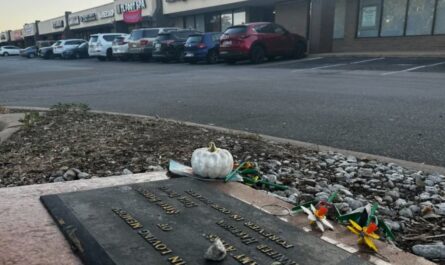Dallas, TX – Texas authorities have indicted 15 individuals in a sweeping money laundering and fraud operation that siphoned off nearly $2.9 million through a series of elaborate online scams, officials announced this week.
The investigation, led by the Texas Financial Crimes Intelligence Center (FCIC) in collaboration with federal and local partners, uncovered a coordinated scheme that involved spoofed emails, romance fraud, fake investments, and vacant land sales.
Sophisticated Email Spoofing at the Core
The primary scam that launched the investigation involved highly sophisticated phishing techniques, authorities said. Fraudsters created nearly indistinguishable fake email addresses to impersonate trusted business associates or financial contacts of their victims.
Once trust was established through email exchanges, victims were instructed to redirect legitimate payments to fraudulent U.S.-based bank accounts. Investigators say this strategy allowed the criminals to bypass initial suspicion and receive funds discreetly.
According to a statement from the Texas FCIC, these deceptive tactics were “so precise in format and spelling” that most victims didn’t realize they had been duped until it was too late.
The Role of Money Mules
To disguise the origin of the stolen funds, the suspects used “money mules”—individuals who willingly or unknowingly assisted in transferring illicit money to various accounts, often across multiple states and financial institutions.
The mules played a key role in layering and distancing the suspects from the initial transaction, making the financial trail more difficult to trace.
“These mules are essential for operations like this to succeed,” said one official involved in the investigation. “They move the money quickly and quietly through the system.”
Expanding Web of Fraud: Romance, Investments, and Real Estate
As the investigation widened, authorities discovered several other interconnected scams, including:
- Romance scams targeting vulnerable individuals online.
- Fraudulent investment opportunities promising unrealistic returns.
- Fake vacant land sales, where property owners were impersonated to collect down payments from unsuspecting buyers.
Each scheme relied on fraudulent wire transfers and the strategic use of money mules to funnel the funds into accounts controlled by the suspects.
Read Also: California Duo Accused of Defrauding Orange City Woman of Nearly $500K, Sheriff Says
Over 100 Bank Accounts Closed
Authorities say over 100 bank accounts linked to the operation have been shut down with the help of financial institutions. Investigators credited partnerships with the U.S. Secret Service’s Baltimore and Houston offices, the Department of Health and Human Services Office of Inspector General, and the Houston Police Department for helping dismantle the complex financial web.
Charges and Penalties
The Dallas County District Attorney’s white-collar crimes unit is now prosecuting the suspects. In total, 29 first-degree felony charges have been filed, including:
- Engaging in organized criminal activity
- Money laundering greater than $300,000
- Theft greater than $300,000
Each charge carries a potential sentence of 15 to 99 years or life in prison. Names of the defendants have not yet been released pending court proceedings.
Public Awareness and Prevention
Officials are urging the public to remain vigilant against phishing attempts and wire fraud. “If someone requests a change in payment instructions via email, always verify through a second method—preferably a direct phone call,” said an FCIC representative.
The case highlights the growing threat of online financial scams and underscores the importance of cross-agency collaboration in combating cyber-enabled crime.
Have you or someone you know been targeted by a similar scam? Share your story at ibwhsmag.com to help others avoid becoming victims.


 by
by 

